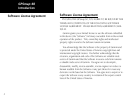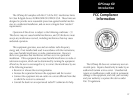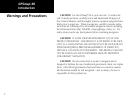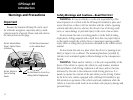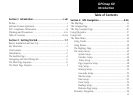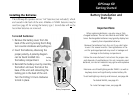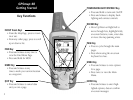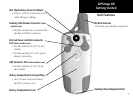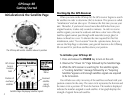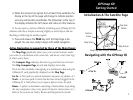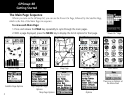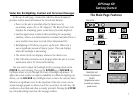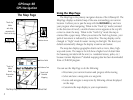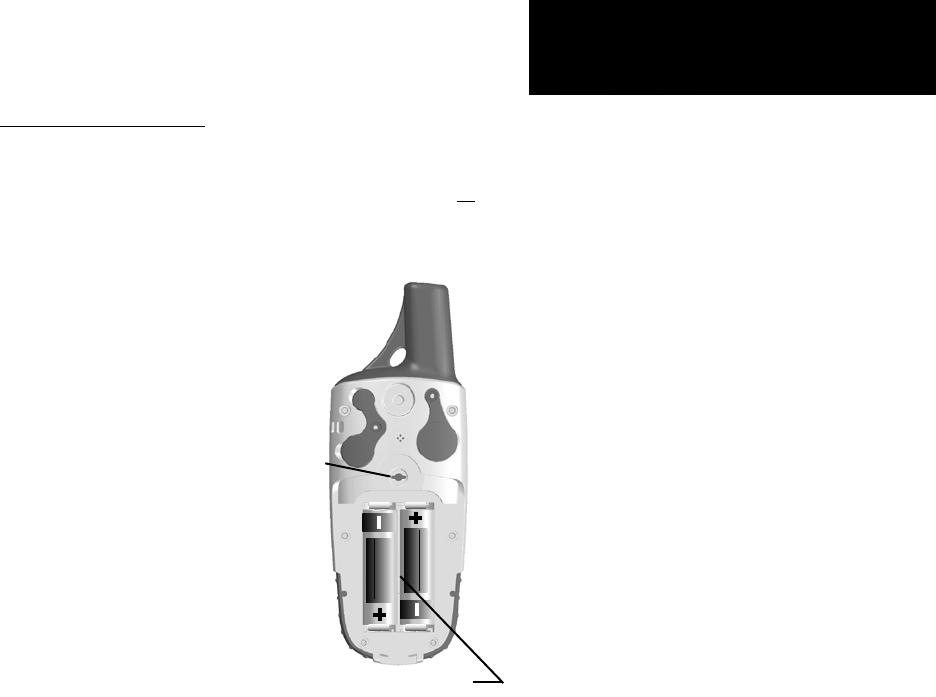
1
GPSmap 60
Battery Installation and
Start Up
Important Note
When replacing batteries, use only new or fully
charged batteries. Do not mix Alkaline and NiMH bat-
teries. Rechargeable batteries may typically display less
capacity than disposable batteries.
Remove the batteries from the unit if you don’t plan
to use it for several months. Storing batteries in the
unit for prolonged periods may result in leakage and
damage to the battery compartment.
Follow the manufacturer’s instructions for proper care
and disposal of used batteries. Do not incinerate used
batteries, as internal materials may ignite with explosive
violence.
Extensive use of backlighting and/or WAAS as well as
key beep tones will significantly reduce battery life.
To set backlighting intensity and timeout, see page 46.
To disable WAAS, see page 45.
To mute the beep tones, see page 48.
Getting Started
Installing the Batteries
The GPSmap 60 operates on two “AA” batteries (not included), which
are located in the back of the unit. Alkaline or NiMH batteries may be
used (see page 45 for setting the battery type.) Stored data will not be
lost when batteries are removed.
T
o install batteries:
1. Remove the battery cover from the
back of the unit by turning the D-Ring 1/4
turn counter-clockwise and pulling out.
2. Insert the batteries, observing the
proper polarity. A polarity diagram
can be found molded into
the battery compartment.
3. Reinstall the battery cover by inserting
the bottom slot over the tab at the
base of the unit and reinserting the
locking pin in the back of the unit.
Turn the D-Ring 1/4 turn clockwise
to lock in place.
Battery Compartment
USE BY: 2009
USE BY: 2009
Locking
Pin Slot




